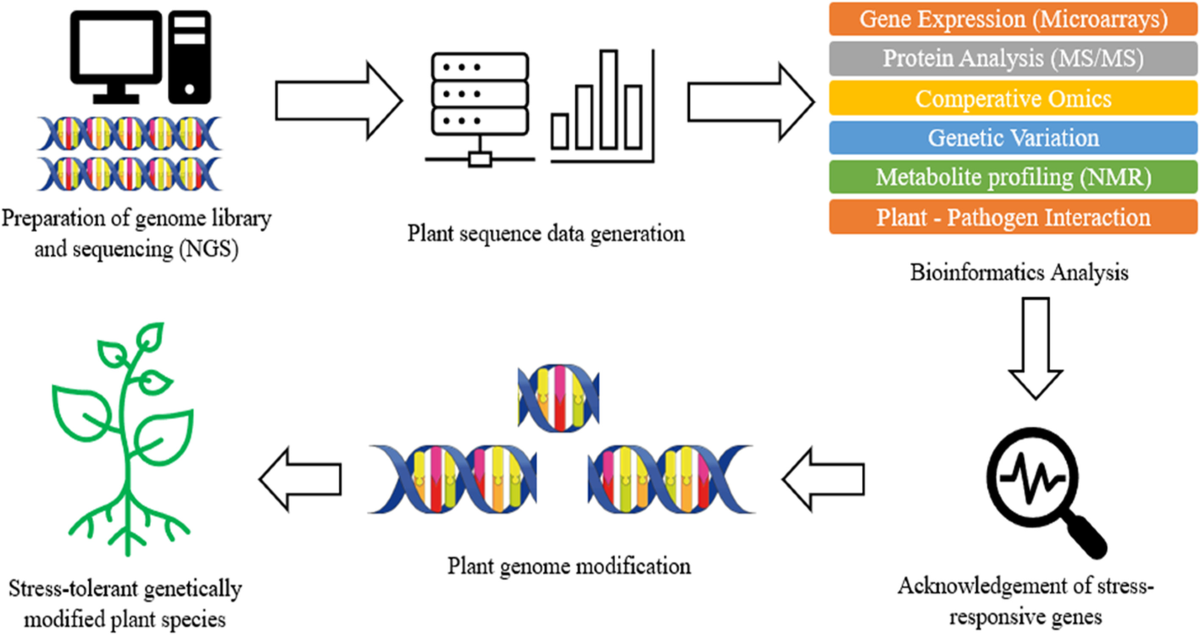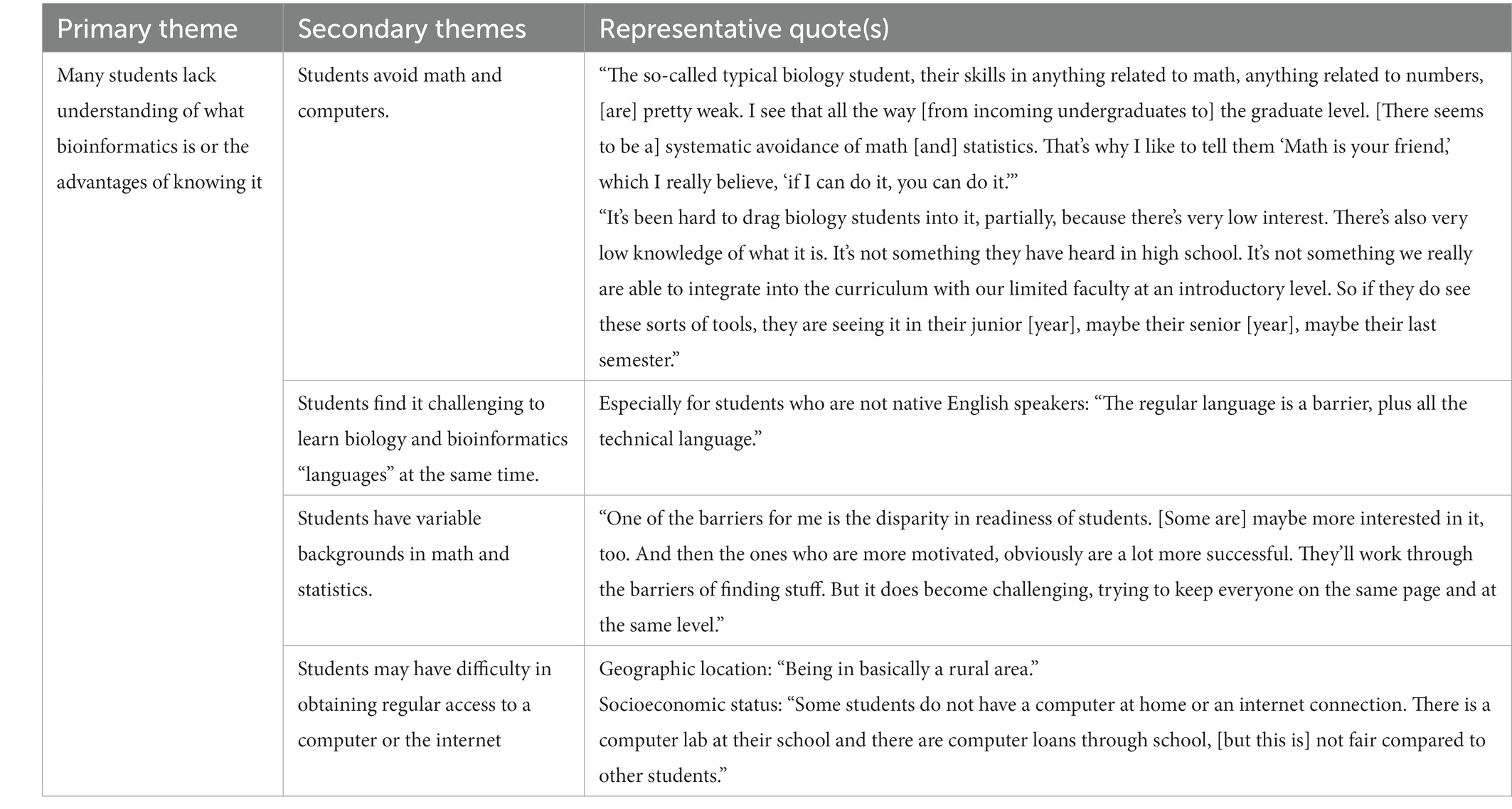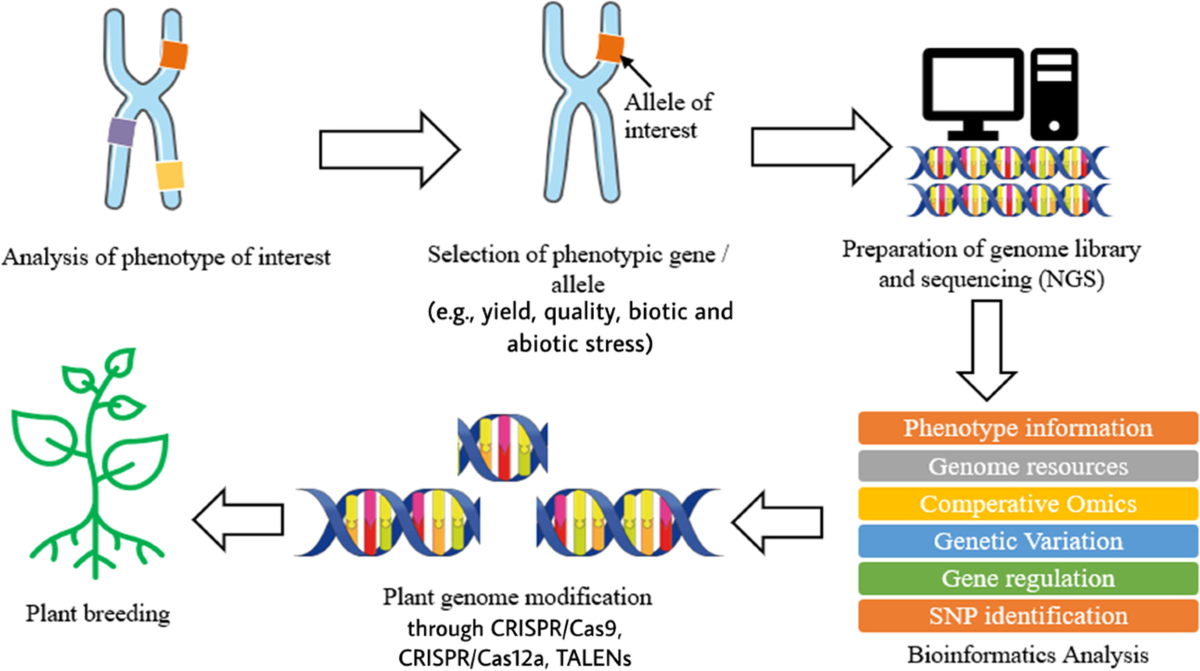More About Bioinformatics Tutor
More About Bioinformatics Tutor
Blog Article
The smart Trick of Bioinformatics Tutor That Nobody is Discussing
Table of Contents4 Simple Techniques For Bioinformatics TutorThe Main Principles Of Bioinformatics Tutor 5 Easy Facts About Bioinformatics Tutor DescribedThe Basic Principles Of Bioinformatics Tutor Bioinformatics Tutor - The Facts
Of the total amount individuals associated with the training, 80% were trainees from public college organizations, while the staying 20% came from personal establishments. To receive a certificate of participation, pupils were required to participate in a minimum of 90% of the complete training hours. As a result of this demand, an impressive 95% of the individuals successfully obtained their certificates, having not only fulfilled the minimum participation criteria however additionally completed all assigned activities throughout the training.
During the height of the COVID-19 pandemic, specifically in between June and August 2020, the job group was charged with organizing specialized training in bioinformatics. This training was especially aimed at pupils from the research study group Center for Study in Applied Computing at the Federal University of Pará (UFRA) The adjustment to remote understanding platforms as a result of the pandemic created a possibility to discover brand-new teaching methods and electronic tools that improved both reach and efficiency.
This program was designed to offer an obtainable yet detailed review of Artificial Knowledge techniques, particularly as used in bioinformatics (Bioinformatics Tutor). This digital format allowed engagement from students throughout Brazil, several of whom might not have had the opportunity to attend in-person sessions.
The Ultimate Guide To Bioinformatics Tutor
About 50% of the complete training hours were committed to functional tasks where pupils built smart designs and applications in an array of scientific domain names, consisting of genetics, molecular biology, and environmental information evaluation. These platforms made it possible for students to engage in real-time information control, model training, and algorithm testing.
Sixty of them were affiliated with different greater education and learning organizations in the state of Pará, while the staying twenty came from institutions found in 5 other Brazilian states. By presenting Artificial Knowledge in a useful and appropriate context, the effort offered to bridge the void in between theory and real-world application, giving pupils with a solid foundation for future study or work in the area.
The training campaign created part of a more comprehensive academic outreach effort called the Bioinformatics on the Road job. This job has, over the years, introduced dozens of pupils to the globe of bioinformatics and computational biology. The events held under this umbrella campaign have actually taken location throughout several areas and years, as summed up in Table 1 (Checklist of events, locations, years, and overall varieties of students and instructors)
Among one of the most impressive outcomes of the Bioinformatics when driving effort has actually been its contribution to the development of decentralized research study teams. Several of these teams, initially combined by their engagement in training occasions, have considering that gone on to generate independent clinical research in partnership with regional scholastic organizations. The training not only fostered scientific thinking within the context of bioinformatics however also stimulated collective connections that extended beyond the training environment. These partnerships have caused boosted neighborhood clinical efficiency and added meaningfully to the growth of the wider bioinformatics community in Brazil.
Bioinformatics Tutor - An Overview
The same team, omitting IH and RR, also acted as tutors for the sensible training modules. Funding for the job was supplied through the give 88887.200562/ 2018-00 from CAPES.
The Federal College of Pará's news Office of Study (PROPESP/UFPA) likewise supplied financial backing, particularly for the production of the last manuscript. The authors declare no business or monetary problems of passion that can have influenced the study. All viewpoints and interpretations expressed in this short article are entirely those of the writers and do not necessarily mirror those of their corresponding establishments, the author, editors, or reviewers included in the magazine process.

Some Known Questions About Bioinformatics Tutor.
From a pedagogical perspective, the training strategy utilized in the training was deliberately interactive. Classes were performed in a way that encouraged student involvement and conversation, exceeding memorizing memorization to explore exactly how concepts are established, applied in day-to-day life, and evaluated in scholastic settings. The training ideology concentrated on supporting both strong and having a hard time trainees, offering personalized assistance, and building confidence through sustained mentorship and patience.

Each team, consisting of roughly 36 participants, was supported by 3 mentors-- the majority of whom were postdoctoral researchers with specialized know-how. These coaches not just helped develop the group jobs however likewise facilitated their implementation, ensuring that each research study question was both suitably difficult and appropriate. The goal was to provide a naturally sensible context that participants can check out through flexible objectives and accessibility to curated datasets.
For extra insights right into the approach and outcomes of this project-based understanding method, viewers are guided to S1 Text, which consists of in-depth descriptions of the pedagogical structure, assessment approaches, and job motifs utilized in the training sessions.
Things about Bioinformatics Tutor
Of the overall participants involved in the training, 80% were pupils from public higher education and learning organizations, while the continuing to be 20% came from exclusive institutions. To qualify for a certification of involvement, pupils were needed to attend at the very least 90% of their explanation the overall training hours. Especially, beyond the pupils who enrolled in the training sessions, seven go to this website experienced trainers participated in providing the training courses, while 3 devoted research professors coordinated the overall training process. Roughly 50% of the total training hours were committed to practical tasks where students built intelligent designs and applications in a variety of clinical domain names, including genes, molecular biology, and environmental information analysis. The training not only cultivated clinical reasoning within the context of bioinformatics but additionally triggered joint relationships that extended past the training atmosphere.
Report this page